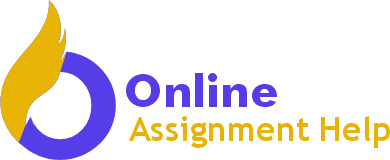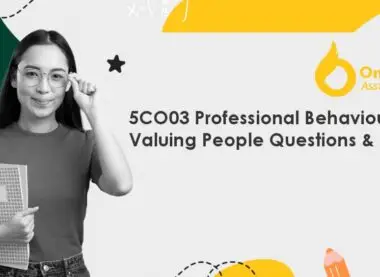5CO03 Professional Behaviours and Valuing People
This unit provides insights on how positive work relationship, employee wellbeing and voice support can be built through the application of professional behaviours which includes;
- Ethical practices where you will learn more on professionals and ethical behaviours concerning people practice, learn how to apply personal and ethical values and how to influence other people by giving confident contributions during team or group discussion
- Inclusivity is where you learn how to introduce inclusive and collaborative strategies showing the impact of an inclusive culture and the importance of treating all employees fairly in an organisation. Learners also learn the different ways of finding solutions to challenges to promote a healthy and positive work relationship.
- Commitment to learn more about learning, professional development and enhancement of performance at work by examining the role of people profession in growth and development.
Learning outcomes
The outcome of this unit, its assessment criteria and indicative content are:
- Ability to signify professional and ethical behaviours based on people practice
Meaning of people professional
Leaners gain insight on evaluating the meaning of being a people professional by defining professional, its values, specifications, frameworks, requirements CIPD Profession Map and personal values such as equality, making a decision based on evidence, professional integrity, inclusivity, value for others, honesty and fairness. People professionals need to be ethical. The learners need to acknowledge the relation of personal and ethical values in factors of people practice and how they can be integrated to shape ways of working and improve work relationships in an organisation by positively influencing cultural differences and expectations. The need to demonstrate professional courage, air a voice for an ethical point of view within an organisation, and support colleagues in adopting the same culture.
Professionals’ confidence to engage in discussions and influence others
Learners pursuing the unit learn the role of professionals in influencing others by confidently contributing to discussions strategically and engagingly. This needs people professionals to be well informed, courageous and confident enough while airing their contribution. The unit helps learners understand how they are expected to handle responsibility for their work taking reviews such as clarifying work requirements and levels of responsibility at work. The learners also get insight into how to review their capability to achieve goals, clearly stating ethics and values, time management, and the ability to meet the set goals within the set timeframe. Learners also engage in determining their involvement in delivering good quality of work and customer satisfaction. Professionals in creating value need to acknowledging mistakes and identify ways of correcting them. The learners will know when and how to raise matters that dispute ethical values such as legal issues, ethical values, and personal values. This supports the development of a culture where professionals learn how to apologise and solve issues at work. Learners also get to understand their responsibilities in managing conflict in the most appropriate ways. This helps in building positive relationships at work. It is also a learning concept that shows the need to develop leadership qualities to support people and the general organisation’s success.
- Ability to advocate for inclusive and collaborative strategies to influence positive work relationship
Benefits of inclusion, valuing and fair treatment to people.
Important concepts to learn in this assessment are stating employees’ personal and organisational benefits to feel included, valued, and fairly treated at work. This contributes to improved job satisfaction, employer brand, increased employee retention, minimal disputes, minimal employee turnover, increased work efficiency and organisational growth and development.
Engaging and influencing people within the organisation
Learners gain insight into how to gain an impressive solution on people practice challenges centred on feedback and engagement with others, such as those influenced directly by the solution. The learners determine engagement levels with comparable intuition, partners in shared responsibilities, and those that share authority in determining a solution. Feedback and engagement can be given either formally or informally by sending emails, exchanging documentaries, doing research or consultations. The learners also learn of the importance of the solutions to influencing and engaging people in an organisation. They learn how to assess the possibility of suggested solutions such as opinion change, acceptance of the change, commitment to the changes, People engagement in propelling change to bring about engagement rather than conformity. The unit helps learners analyse the level to which the solution allows different needs, agendas, and ways to be sold to bring about engagement and enhance positive results. Learners can also analyse the level to which the objective has been achieved by the use the original plan.
Approaches to inclusive working and building relationships with others
Learners need to understand how to contemplate their attitude towards working inclusively and building a positive work relationship. This brings in the essentiality of valuing others and recognising their abilities. In addition, the learners understand how to acknowledge the importance of diversity, actively listen to diverse opinions, build trust, provide support, share information and seeking views from others. Through this, the learners realise the importance of dealing with colleagues, sharing knowledge and information and expertise to solve challenges faced at work.
- Ability to show commitment to learning, personal development and enhancing performance in an organisation
The evolving role of people professionals
Learners evaluate the role of people professionals in productivity and its impact on continuing professional development (CPD). With the evolving role in HR, professionals develop knowledge and skills essential in enhancing organisational growth and development. Important knowledge areas that support commitment to professional development in the evolving world of work include business acumen, specialist expertise, collaborative working skills, technology savvy, effective management and communication skills.
Learners’ self-assessment
Learners are expected to assess to understand their strengths and weaknesses. The learners then analyse the assessment results and use the feedback to identify their development areas. An essential tool that learners interact with is the CIPD Profession Map and My CPD Map.
CPD activities to support the learning journey
Learners identify different learning methods, both formal and informal, to identify professional development activities needed to support the learning journey. The CPD models and theory, CIPD and professional requirements for CPD such as formal and informal self-directed learning and coaching and mentorship are the learning activities that support professional development. Learners also learn about applying skills learned appropriately, social media learning, reading books, journals, blog posts, webcasts, watching videos, doing research, attending group discussions, conferences, on-job training, enrolling in training courses shadowing.
Impact of CPD activities on learners’ behaviours
The learners gain insight into analysing the importance of continued professional development activities on their behaviour and performance at work. They need to check on positive changes, analyse whether the intended outcomes were met and assess the impact on personal performance and behaviour. This can be assessed by performing performance analysis, results analysis, and behaviour and performance change analysis.






